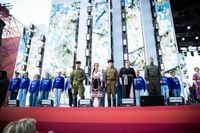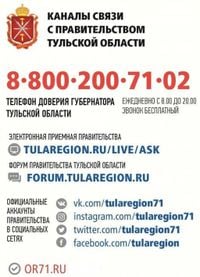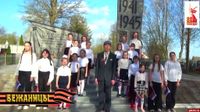On May 9, 2025, a remarkable event took place on the Nizhnevolzhskaya embankment in Nizhny Novgorod, where a folk choir of 100 individuals gathered to perform the iconic song "Victory Day" during the concert-festival titled "Military Songs at the Kremlin." This celebration was not just a musical performance; it represented a deep-seated sentiment of unity among the participants, who came from diverse backgrounds, including doctors, teachers, volunteers, and leaders of youth organizations.
The concert was organized by the regional branch of the All-Russian movement "Volunteers of Victory" with the enthusiastic support of the Nizhny Novgorod regional government. Maria Samodelkina, the head of this organization, expressed the profound emotions that such events evoke, stating, "Each participation in such a concert evokes a deep sense of unity and involvement." She emphasized the importance of honoring the feats of older generations and preserving the memory of the Great Victory. Samodelkina further noted that the performance of this beloved song by such a varied group of people underscores that this holiday belongs to everyone, touching the hearts of millions of Russians.
The significance of the event was amplified by the fact that 2025 marks the 80th anniversary of Victory in the Great Patriotic War. This anniversary has drawn international attention, with leaders from various countries, including China, Venezuela, Brazil, Belarus, Kazakhstan, Kyrgyzstan, Uzbekistan, and Tajikistan, arriving in Moscow to participate in the commemorative festivities. The presence of these leaders highlights the event's importance as a platform for international dialogue and the preservation of historical memory.
Meanwhile, in Vienna, Austria, another touching tribute occurred as residents played the song "Return the Memory," featuring lyrics by Maria Zakharova and performed by Russian singer Elena Sever. This event, announced by Zakharova, further exemplifies the global recognition and celebration of the 80th anniversary of Victory.
The festivities in Moscow included various ceremonial events, which have been described as opportunities for fostering international dialogue. Earlier, during discussions with Egyptian President Abdel Fattah al-Sisi at the Kremlin, President Vladimir Putin expressed his gratitude in Arabic for the congratulations received on the anniversary of Victory. This interaction not only highlights the significance of the occasion but also the importance of diplomatic relations in commemorating shared histories.
As the events unfolded across different locations, the overarching theme remained consistent: a collective remembrance of the sacrifices made during the war and the importance of unity in honoring that legacy. The performances, speeches, and gatherings serve as powerful reminders of the enduring impact of history on contemporary society.
In Nizhny Novgorod, the choir's performance of "Victory Day" resonated deeply with audiences, evoking feelings of nostalgia and pride. The song, a staple of Russian patriotic music, encapsulates the spirit of resilience and remembrance that characterizes this significant day. Samodelkina's reflections on the event resonate with many who participate in such commemorations, as she stated, "Together we are an invincible force! This is what our history tells us, and we are its heirs, the heirs of Victory."
The collective participation of individuals from various walks of life in the Nizhny Novgorod concert illustrates the notion that celebrating Victory Day is not just a national obligation but a communal experience that brings people together. The involvement of youth leaders and volunteers signifies a passing of the torch, ensuring that the memories of past sacrifices are not forgotten.
As the world reflects on the events of the past, the significance of such commemorations cannot be overstated. They serve as a poignant reminder of the cost of freedom and the importance of unity in the face of adversity. The 80th anniversary of Victory stands as a testament to the resilience of the human spirit and the enduring legacy of those who fought for peace.
In conclusion, the events held in Nizhny Novgorod and Vienna are not isolated incidents but part of a larger narrative that connects people across borders in a shared commitment to remembrance and respect. As nations come together to honor the past, they also pave the way for future dialogues and collaborations, ensuring that the lessons learned from history continue to resonate for generations to come.






